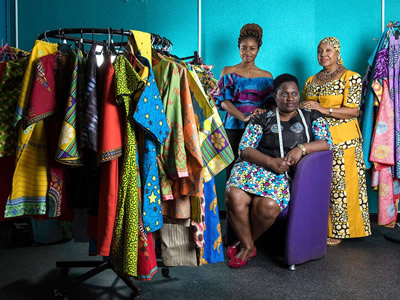
A new policy guide for host countries, development and humanitarian partners to help build economic opportunities for migrants and refugees is launched at the World Investment Forum.
Entrepreneurship has the power to create a win-win situation for host countries and the migrants and refugees who move to them, say three United Nations bodies which have partnered on a new policy guide launched at the World Investment Forum in Geneva, Switzerland, on 24 October.
The guide offers practical guidance to host countries, development and humanitarian partners on how to best ensure that refugees and migrants use their skills and abilities to build their livelihoods while contributing to host communities and economies.
“The creation of economic opportunities for all, with the purpose of leaving no one behind, is a priority of the 2030 Agenda for Sustainable Development,” UNCTAD Deputy Secretary-General Isabelle Durant said. “One mechanism to achieve this is through the promotion of entrepreneurship.”
UNCTAD collaborated with the International Organization for Migration (IOM) and the United Nations High Commissioner for Refugees (UNHCR) on the new guide.
“In a moment in which beliefs about international migration and refugee flows are rife with misconceptions, UNCTAD, IOM and UNHCR have put together their forces to provide a fact-based narrative, highlighting the positive social, cultural and economic contribution migrants and refugees make to their home and host countries,” Ms. Durant said.
‘Migration-blind’ policy
The guide was produced as part of the response to the New York Declaration for Refugees and Migrants, signed at the 71st UN General Assembly in September 2016, and has been published just weeks before international leaders sign the Global Compact on Safe, Orderly and Regular Migration in Marrakech, Morocco.
“Policymakers invariably doubt the economic benefits of migration, so it is important to underline them with a guide like this,” IOM Deputy Director-General Laura Thompson said.
“Realizing these benefits does not happen automatically, and affirmative action by governments and the private sector is needed because policy frameworks are often ‘migration-blind’. Research is nevertheless being undertaken which proves the benefits that migrant-entrepreneurs bring to themselves and host communities.”
Ms. Thompson said that migrants were by definition risk-takers, suited to entrepreneurship, and they could often enrich and catalyse trade through diaspora networks.
“The guide draws extensively from our collective field experience in facilitating the economic inclusion of refugee populations in their host communities,” UNHCR Assistant High Commissioner Volker Türk said.
Core tool
“The clear majority of refugees ends up living in developing countries that have their own economic challenges. It is with this in mind that the Global Compact on Refugees – different from the Global Compact on Migration – seeks to provide timelier, more predictable and comprehensive support to refugee-hosting countries,” Mr. Türk added.
The partner agencies also invited Emily Adams and Ana-Maria Angarita of Capacity, a Zurich-based start-up incubator for people with a refugee and migrant background who want to launch a business or a socio-cultural initiative in Switzerland, to add their voice to the debate.
“We understand that we are one of a growing community of projects, organizations and institutions fostering refugee and migrant entrepreneurship globally,” they said.
“This new policy guide provides us with a foundational, theoretical and applied background to our work, and the broader societal context in which our work is taking place.”
“Our approach focuses on the diversity of culture, skills and experience, to foster innovation in entrepreneurship. We see entrepreneurship as a core tool to navigate social change, and build a more sustainable, inclusive and resilient global society,” they said.
“Policymakers have to play a key role,” they added. “They need to have a greater knowledge of migrant entrepreneurship, to better support migrant enterprises and their role in economic growth and job creation. We all acknowledge the complexity of the migration-entrepreneurship-employment nexus: this is why Capacity has been collaborating closely with UNCTAD to launch the global policy guide on entrepreneurship for migrant and refugees.”